Yes – Fly From Here (Vinyl) Original Version
Frontiers Records (2011)
$120.00
Very Rare, Highly Sought After Original European Pressing In Immaculate Condition! Beautiful Gatefold Cover, Designed By Roger Dean. Record Has Custom Picture Labels. Produced By Trevor Horn, ‘Fly From Here’ Was The First New Studio LP From Yes In Over Ten Years!
Out of stock
CompareProduct Description
Very Rare, Highly Sought After Original European Pressing In Immaculate Condition! (This Is The Version That Features Benoit David On Vocals). Beautiful Gatefold Cover, Designed By Roger Dean. Record Has Custom Picture Labels. Produced By Trevor Horn, ‘Fly From Here’ Was The First New Studio LP From Yes In Over Ten Years!
Chris Squire – Bass / Vocals
Steve Howe – Guitars / Vocals
Alan White – Drums / Percussion
Geoff Downes – Keyboards
Benoit David – Lead Vocals
Condition — Vinyl: NEAR MINT!
Condition — Cover: NEAR MINT! Tiny bend on corner.
Side 1:
Fly From Here
Overture
Pt I – We Can Fly
Pt II – Sad Night At The Airfield
Pt III – Madman At The Screens
Pt IV – Bumpy Ride
Pt V – We Can Fly (reprise)
Side 2:
The Man You Always Wanted Me To Be
Life On A Film Set
Hour Of Need
Solitaire
Into The Storm
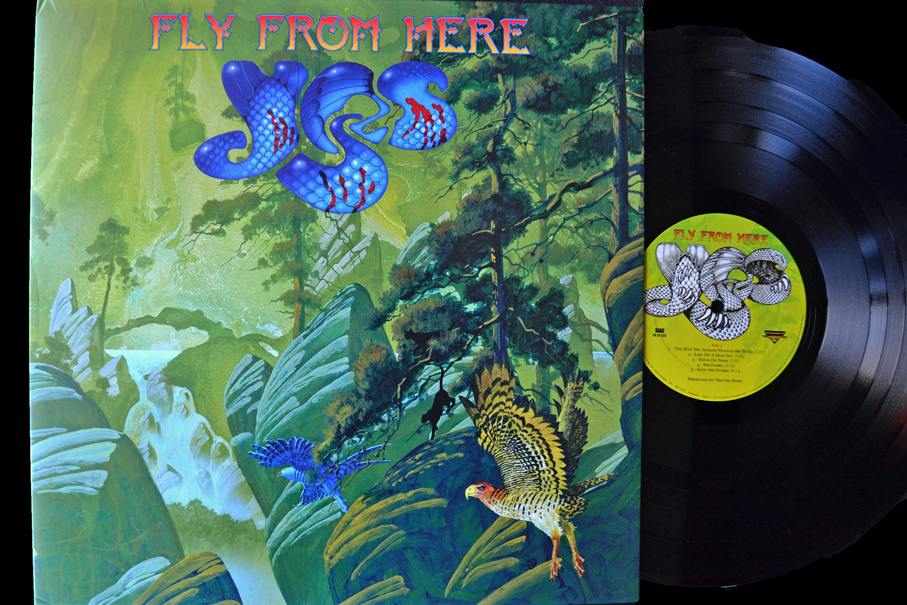

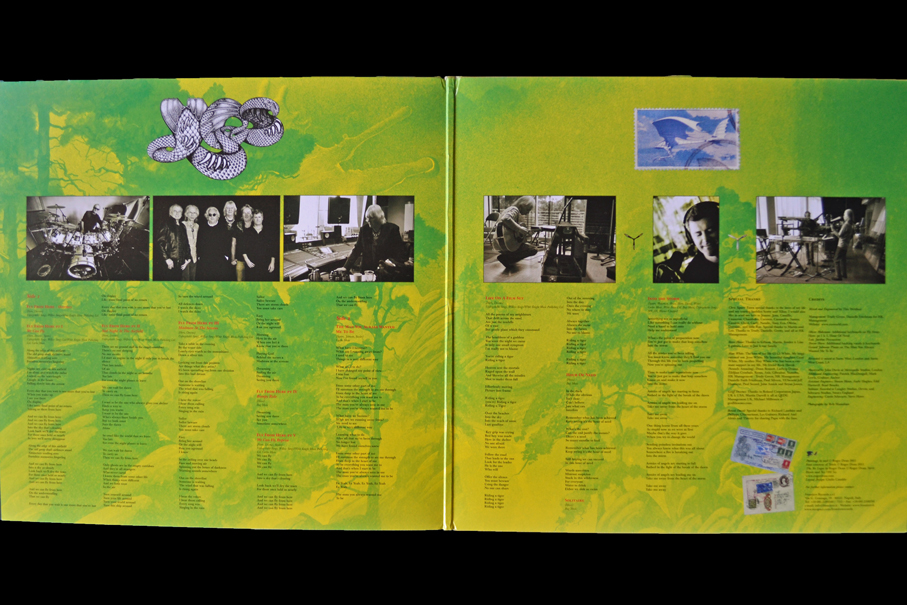
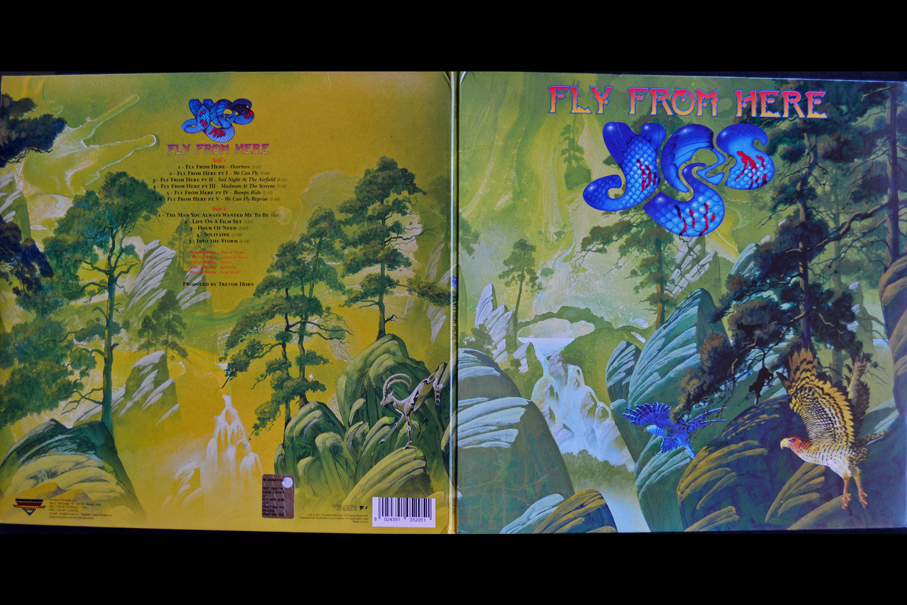
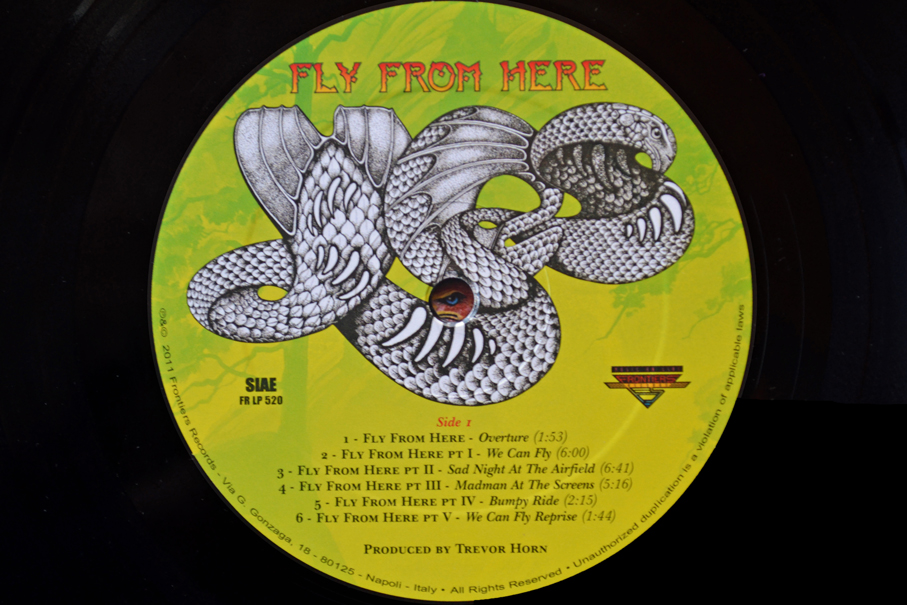
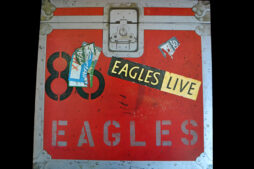
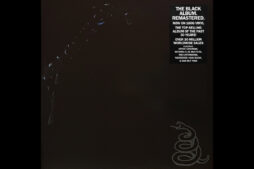
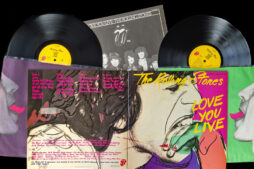
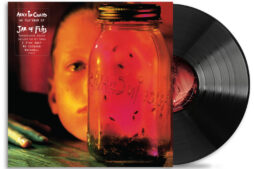

AMG –
With virtuoso-level playing and wonderfully elegant mixing of the vocals, this album stands alongside the group's best work of the last 35 years. A decade after their last studio release, Yes has issued Fly from Here, and it's not only a keeper, but as good as any record to come from the group since 1974. Consisting here of Chris Squire (bass, vocals), Steve Howe (guitars, vocals), Alan White (drums), Geoff Downes (keyboards), and Benoit David (lead vocals), and with Trevor Horn producing, an obvious connection can be made between this album and 1980's Drama. But Fly from Here is a long way from that earlier album, even if the songs do possess a good deal of drama. Downright urgency is closer to it. Benoit David may not have Jon Anderson's range, but he makes up for it with deep expressiveness; and that, coupled with virtuoso-level playing and wonderfully elegant mixing of the vocals, allows this album to stand alongside the group's best work of the last 35 years. Some of what's here will invite comparisons with their early years: the first six tracks are a six-part suite ("Fly from Here"), but it's not essential to hear them linked. Astonishingly for a 2011 release, the group sounds as though they're a bunch of kids again, inventing progressive rock for the first time, or perhaps perfecting it, complete with romantic ballads and folk-like pieces that stand in sharp contrast to the grander productions on which the album rests. Though nothing is overlong or complex, the songs are all presented with a depth and lushness that makes one think, at first, of a soundtrack to a movie, and then of the movie itself, as though Horn, Downes, and Squire (who, with Howe, dominate the composers' credits) had a long-form, multi-media piece in mind rather than just an album. And they execute it all with a fullness of sound and compelling melodic content that pulls the listener in, almost as surely as any first-rate opera; and with Howe's mostly instrumental contributions to break up the majestic production of Horn's songs, this album does, at times, remind one of the best moments of Tales from Topographic Oceans. Lyrics like "Dreaming, seeing you there" lofting gently over thin, silky sheets of sound, can sweep the listener away, and that's only one of the moments where the group's unique elements take hold. Fans of Howe's playing will also not be disappointed: his electric guitars are represented in complex, intense layers, but his acoustic work isn't shorted, providing quietly gorgeous openings to about a third of the material here. His "Hour of Need" is the most genial acoustic ballad that this group has delivered since "Your Move" on The Yes Album, 40 years ago. It's followed by "Solitaire," possibly the finest solo guitar piece we may ever hear from Howe on a Yes album. And it all closes with the rollicking "Into the Storm," all electric and all cylinders pumping, and, ironically, the least interesting track on the album.